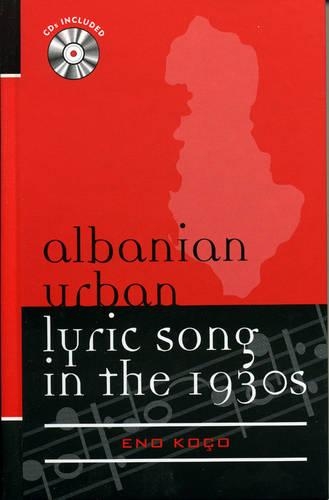
Albanian Urban Lyric Song in the 1930s
Series: Europea: Ethnomusicologies and Modernities
This resource aims to introduce Western audiences to what is perhaps the least known, heard or discussed urban folk-music in Europe. Although this music--Albanian urban song--is the most prominent of Albanian musical genres, it has continuously been overlooked by musicologists in favor of rural folk-music. Some commentators have implied that Albanian urban music was not as genuinely Albanian as th
1930
VOLUME
English
SA

This resource aims to introduce Western audiences to what is perhaps the least known, heard or discussed urban folk-music in Europe. Although this music--Albanian urban song--is the most prominent of Albanian musical genres, it has continuously been overlooked by musicologists in favor of rural folk-music. Some commentators have implied that Albanian urban music was not as genuinely Albanian as the music of its mountains and countryside. But it is no less a part of the country's musical history, particularly in the twentieth century, and is equally as pure an expression of Albanian spirit and culture. The author examines the indigenous diatonic and chromatic modes used in Albanian urban music and classifies them under traditional headings and as part of a newly established grouping, here termed south-western Balkan modes. The core of the work is the analysis of Albanian urban lyric songs, seen as an artistic version of the traditional Albanian urban songs. When these songs began to enter the classical repertories, the pioneers of the 1930s suggested that, based on the Albanian urban songs, the new genre should be developed into urban lyric song. Whatever its origin, whether Near Eastern or south-western Balkan, the composer-arrangers and the lyric singers of the Albanian urban lyric song in the 1930s conceived them on the whole as Western vocal and instrumental products. Complemented by two music CDs, Albanian Urban Lyric Song in the 1930s provides musicologists, students of Balkan music, and curious readers with an enlightening discussion of a much overlooked but richly rewarding musical tradition.About the Author: Eno Koço is a teaching fellow of performance classes and permanent conductor of University of Leeds Philharmonia at University of Leeds, School of Music. He conducts throughout North England and maintains regular contact with several Balkan orchestras and opera houses. He makes programs on the music of Albania for broadcast on BBC Radio 3 and BBC World Service and gives papers on the same theme at different universities, including at Limerick, Leeds, London, Tirana, and Prishtina.
Price Comparison [India]
In This Series
Bestseller Manga
Trending NEWS




















